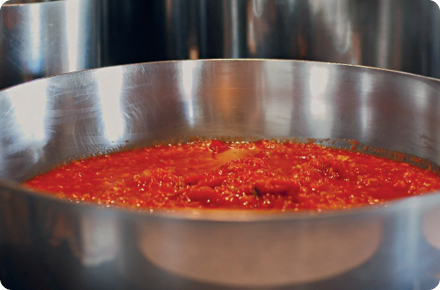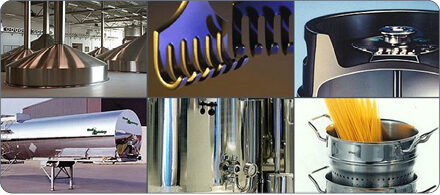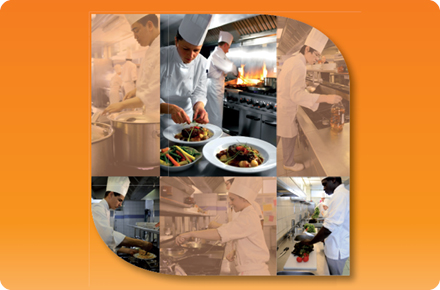The discovery of stainless steel early in the 20th century was a milestone event for the food and drink processing industries. This wonderfully hygienic and durable alloy has become a favourite in domestic kitchens and for the very same reasons, it is the material of choice in industries as diverse as the processing of milk and dairy products, beer and wine making, confectionery, cooked meats and many, many more.
In this modern age, we take it as a reality that much of our food will be processed, sanitised and packaged under hygienic conditions before it arrives on our plate. Nevertheless, convenience foods will never completely destroy the art and satisfaction of preparing and cooking our own meals from fresh ingredients. Until fairly recently, stainless steel ovens, cooking utensils and tableware were regarded as an expensive luxury in the modern kitchen. Good design, mass production and competition have changed all of that so that the householder can enjoy all of the benefits and attributes of this remarkable family of materials.
Today, more than 30% of all stainless steel produced goes into products related to the food and beverage sector. In this section of the library, there are publications which give guidance on grade selection as well as the importance of hygienic design and fabrication methods for food and beverage handling equipment.
Stainless steel in agricultural applications
From a simple feeding pail to the most advanced fully robotised milking equipment, stainless steel is found on farms in numerous applications, where it is an alternative to plastics, light metal and above all galvanised steel.
This brochure explains why stainless steel in used in agricultural applications and highlights applications in fences, gates and partitions, feeding, watering, electrical and mechanical equipment, skin care, dairy farming, ancillary equipment and storage tanks for slurry and waste water.
Download this brochure
Published 10 January 2020
Stainless steel in the food and beverage industry
This publication explains why stainless steel is the dominant material in the food industry for all types of processing equipment and gives helpful information on material selection, fabrication, surface finish, design principles and relevant European standards.
This document is available in English, Czech, Polish and Turkish [clicking on the language will open the pdf]
Published 10 January 2020
The sugar industry
Corrosion and rapid wear of factory equipment are widely recognised as major production-cost and quality problems in the sugar industry.
The short life of equipment and the need for excessively frequent cleaning and maintenance – often involving disruption of crop processing – can make producing sugar an excessively expensive exercise. Even the quality of the sugar is affected.
The origin of the problem, both in the processing of beet and cane, is that the materials handled are highly corrosive and/or highly abrasive, according to the stage of processing. Stainless steels can offer a solution here.
Download more information
Published 09 April 2024






